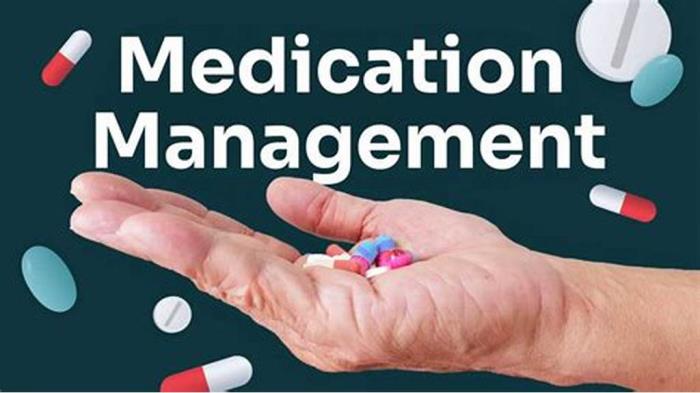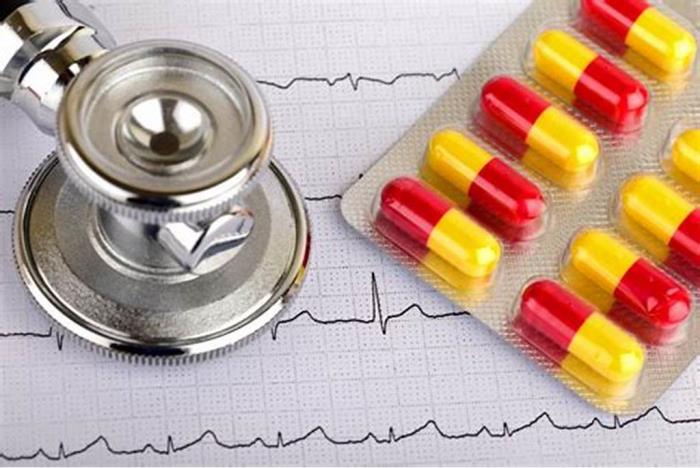Medications play a crucial role in the surgical management of patients, particularly in the context of robotic heart surgery. Proper medication management can significantly influence surgical outcomes, enhance patient comfort, and reduce complications. This introduction highlights the importance of understanding how medications are utilized before, during, and after surgical procedures, ensuring a holistic approach to patient care.
Overview of Robotic Heart Surgery: What to Expect
Robotic heart surgery is an innovative surgical technique that allows surgeons to perform complex procedures through smaller incisions, minimizing trauma to the body and facilitating quicker recovery times. Patients can expect a highly controlled environment where advanced technology enhances the surgeon's precision. Prior to the procedure, thorough evaluations will be conducted to determine the appropriate surgical approach, and patients will receive detailed information about the operation, potential risks, and expected outcomes.
Importance of Preoperative Medication Management
Effective preoperative medication management is vital for optimizing patient outcomes in robotic heart surgery. Ensuring that patients are on the correct medications prior to surgery helps to stabilize their condition and minimizes the risk of complications during and after the procedure. This management includes reviewing current medications, adjusting dosages as necessary, and prescribing additional medications to address specific needs. By taking a proactive approach, healthcare providers can enhance patient safety and comfort during the surgical process.

Common Medications Prescribed Before Robotic Surgery
Several types of medications are commonly prescribed in the lead-up to robotic heart surgery, each serving a specific purpose in preparing the patient for the procedure. These medications may include anticoagulants to prevent clot formation, pain management drugs to alleviate discomfort, and anti-anxiety medications to reduce stress. A comprehensive understanding of these medications and their roles is essential for both patients and healthcare providers.
Anticoagulants: Preventing Blood Clots Before Surgery
Anticoagulants are a critical component of preoperative medication management, particularly for patients undergoing robotic heart surgery. These medications help prevent the formation of blood clots, which can pose serious risks during surgery and in the postoperative period. Common anticoagulants include warfarin, dabigatran, and rivaroxaban. It is essential for patients to discuss their anticoagulant regimen with their healthcare provider to ensure optimal management leading up to the procedure.
Pain Management: Medications to Control Preoperative Discomfort
Effective pain management is another crucial aspect of preoperative care for patients scheduled for robotic heart surgery. Medications aimed at controlling pain can significantly enhance patient comfort and overall satisfaction with the surgical experience. Commonly used medications include non-steroidal anti-inflammatory drugs (NSAIDs) and acetaminophen. In some cases, healthcare providers may prescribe stronger analgesics, depending on the patient's individual needs and the anticipated level of discomfort associated with the surgery.
Anti-anxiety Medications: Reducing Stress and Anxiety Before Surgery
Managing anxiety is essential for patients preparing for surgery, as stress can negatively impact both the surgical experience and recovery process. Anti-anxiety medications, such as benzodiazepines, may be prescribed to help reduce preoperative anxiety levels. These medications promote relaxation and calmness, enabling patients to approach their surgery with a clearer mind and less apprehension. It is important for patients to communicate openly with their healthcare providers about their anxiety levels and any previous experiences with surgery, ensuring that they receive appropriate support.
Medications for Heart Rhythm Management Prior to Surgery
Before undergoing robotic heart surgery, patients may be prescribed medications to manage heart rhythm irregularities. These medications, such as beta-blockers and antiarrhythmics, help stabilize the heart's electrical activity and minimize the risk of complications during surgery. Proper management of heart rhythm is essential, as it can significantly influence surgical outcomes and recovery.

Postoperative Pain Management: Medications After Surgery
Effective pain management following surgery is crucial for promoting recovery and enhancing patient comfort. Commonly prescribed medications include opioids for severe pain and non-steroidal anti-inflammatory drugs (NSAIDs) for milder discomfort. A tailored pain management plan is vital to minimize side effects while ensuring adequate pain control.
Antibiotics: Preventing Infection Following Robotic Surgery
Antibiotics play a critical role in preventing postoperative infections, particularly after robotic heart surgery. Prophylactic antibiotics may be administered before and after the procedure to reduce the risk of infection at the surgical site. Adhering to the prescribed antibiotic regimen is essential for successful recovery and minimizing complications.
Antiemetics: Managing Nausea After Surgery
Nausea and vomiting can be common side effects following surgery. Antiemetic medications help manage these symptoms, allowing patients to recover more comfortably. Medications like ondansetron and metoclopramide are often prescribed to control nausea, promoting better hydration and overall recovery.
Anticoagulation Therapy Post-Surgery: Importance and Guidelines
Anticoagulation therapy is critical in preventing blood clots after robotic heart surgery. Patients may be prescribed anticoagulants such as warfarin or direct oral anticoagulants (DOACs) based on their individual risk factors. Adhering to anticoagulation guidelines is essential to balance the risk of bleeding with the prevention of thromboembolic events.
Blood Pressure Medications: Maintaining Stability After Surgery
Maintaining stable blood pressure post-surgery is crucial for recovery. Patients may continue their antihypertensive medications or be prescribed new ones to manage their blood pressure effectively. Close monitoring is necessary to prevent complications such as hypotension or hypertensive crises during the recovery period.
Monitoring for Side Effects: Recognizing Complications from Medications
Patients must be vigilant about recognizing potential side effects from their medications after surgery. Common side effects include dizziness, fatigue, and gastrointestinal issues. Understanding these side effects helps patients communicate effectively with their healthcare providers, ensuring timely intervention if complications arise.
The Role of Supplements in Recovery: What to Consider
Certain supplements can support recovery after surgery, including vitamins C and D, zinc, and omega-3 fatty acids. However, patients should consult with their healthcare provider before adding any supplements to their regimen, as some may interact with prescribed medications or have contraindications.
Patient Education: Understanding Medication Use Before and After Surgery
Patient education is vital for ensuring adherence to medication regimens. Patients should be informed about the purpose, dosage, and timing of their medications before and after surgery. Understanding the importance of each medication empowers patients to take an active role in their recovery.
Collaborating with Healthcare Providers: Personalized Medication Plans
Collaboration with healthcare providers is essential for developing personalized medication plans tailored to individual patient needs. This approach considers factors such as medical history, current medications, and specific surgical procedures, optimizing recovery outcomes and minimizing the risk of complications.
The Impact of Medications on Recovery Outcomes
The appropriate use of medications significantly impacts recovery outcomes following robotic heart surgery. Effective pain management, infection prevention, and stable heart rhythm are crucial for a successful recovery. Patients who adhere to their medication regimens typically experience better overall outcomes and a smoother recovery process.
Lifestyle Adjustments: Complementing Medication with Healthy Habits
In addition to medications, making healthy lifestyle adjustments can enhance recovery. Patients should focus on balanced nutrition, regular physical activity, and stress management to support their healing process. Integrating these habits with medication management creates a comprehensive approach to recovery.
Latest Innovations in Robotic Heart Surgery Techniques
Stay updated on the latest innovations in robotic heart surgery. This section explores groundbreaking techniques and technologies enhancing precision, reducing recovery times, and improving outcomes in cardiac procedures performed using robotic assistance.
Risks and Complications Associated with Robotic Heart Surgery
Understand the risks and complications that may arise during robotic heart surgery. This section highlights potential adverse effects, surgical challenges, and the importance of thorough preoperative evaluations to mitigate these risks effectively.
Conclusion: Optimizing Recovery Through Medication Management
Optimizing recovery from robotic heart surgery involves careful medication management tailored to individual needs. By understanding the role of various medications, adhering to prescribed regimens, and making lifestyle adjustments, patients can significantly improve their recovery outcomes and overall well-being.
Best Robotic Heart Surgery in India
The Best Robotic Heart Surgery in India offers a minimally invasive approach to complex heart procedures, utilizing robotic technology to improve precision and reduce recovery time.
Robotic Heart Surgery Cost in India
The robotic heart surgery cost in india is competitive, offering patients affordable options for high-precision heart surgery with transparent pricing and accessible care.
Best Robotic Heart Surgeons in India
The Best Robotic Heart Surgeons in India are highly trained in robotic techniques, providing personalized care and expert precision in complex heart surgeries.
FAQ
What medications are commonly prescribed before robotic heart surgery?
Common medications include beta-blockers for heart rhythm management and anticoagulants for preventing clots.
How can I manage pain effectively after surgery?
Effective pain management typically involves a combination of opioids and non-steroidal anti-inflammatory drugs (NSAIDs) tailored to individual pain levels.
Are there specific medications to take for anxiety before surgery?
Anxiety management may involve medications such as benzodiazepines, prescribed on a case-by-case basis to help patients feel more comfortable before surgery.
What role do anticoagulants play in preoperative care?
Anticoagulants help prevent blood clots during and after surgery, reducing the risk of complications associated with blood clots.
How should I manage my medications during recovery from robotic surgery?
It's essential to follow your healthcare provider's instructions closely, monitor for side effects, and communicate any concerns about your medications during recovery.
Explore the Best Heart Care Resources in India
Find some of the top cardiologist, surgeons and the best heart hospitals in India
Best Heart Hospitals in India
Choosing the right hospital is crucial for successful heart treatments. If you want to explore trusted options, check the list of Best Heart Hospitals in India offering world-class facilities, advanced cardiac care units, and experienced teams for both simple and complex procedures.
Best Cardiologists in India
Finding the right cardiologist can make a huge difference in early diagnosis and long-term heart health. If you are looking for the Best Cardiologists in India, see this curated list of experts who specialize in preventive care, interventional cardiology, and complex heart disease management. Check the full list Best Cardiologists in India.
Best Cardiac Surgeons in India
If you are planning for heart surgery and need top-level expertise, we recommend exploring the Best Cardiac Surgeons in India. These surgeons have a proven record in performing bypass surgeries, valve replacements, and minimally invasive heart operations with excellent outcomes.